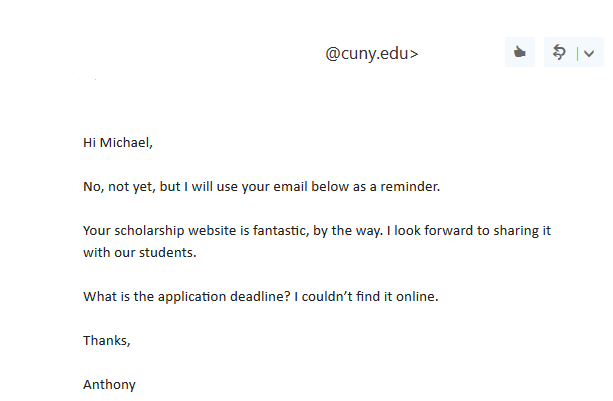Start Exploring Keyword Ideas
Use Serpstat to find the best keywords for your website
The Season Of Giving: Leveraging Charities For Link Building


Intro to link building
Intro to link building
One of the key ways Google decides which websites to rank well in their search engine is backlinks, i.e., 3rd party sites that link to a given website or webpage. Links are one of the most effective ways of improving ranking, but also generally the hardest ranking factors to influence.
Because of this, an entire field of practice emerged, "link building," which attempts to find creative and effective ways at generating and analyzing backlinks.
These tactics can range wildly. Some examples:
- Friendly outreach (i.e. "Hi! We've created this content, it's great, would you link, please?");
- Outright purchases, (i.e., "How much for a blog post?");
- Broken link building, (i.e. "You are linking to a 404 page, my page is better");
- Automated Spam, (i.e., Programmatic posting of content/links to publishing platforms like forums, web 2.0s, and article directories);
- Hacked sites, (i.e., Exploiting vulnerabilities in CMS like WordPress, posting links or content without owners consent or knowledge).
Because of the value associated with search engine rankings, the SEO community can and will find any way to build links. This includes leveraging charities, the subject of this post.
A word on ethics
A word on ethics
I understand, it sounds weird. We should be giving to charities out of the kindness of our hearts, not for personal or professional gain. But I would frame it in this light:
A word on "paid links"
A word on "paid links"
When someone touts the dangers of "buying links," it's usually people that have little to no actual experience ranking websites or practicing SEO. If I were to guess, these people would have little success at tactical SEO and source all their alleged "knowledge" from industry blog posts and Google propaganda. I say this because, years ago, I was just like them. Simply put, I was, and they are, beginners.
The more years you put into the industry, the more you will realize that every link has been paid for in one form or another. It costs money to write content and make sites look pretty. Hosting CDNs and strategy sessions costs money. It costs money for PR, it costs money for customer service, outreach, writing guest posts, running scrapers, digging through broken link reports, and whatever.
So when all those white-hat links come pouring in, it can't be argued that they aren't bought and paid for. So, let's dispose of those hollow "paid links" arguments and get down to the brass tacks: this tactic is just like any other tactic.
Why charities make for good link building
Why charities make for good link building
That being said, they aren't doormats and don't want to be link farms, so you still need to be creative and tactful when pitching.
The tactics – ways to leverage charities for link building
The tactics – ways to leverage charities for link building
Starting off with the most common and obvious, the Sponsor page.
#1: Sponsor pages
#1: Sponsor pages
This is the most common tactic because it's so simple. I give you money; you give me link.
Of course, you'll have to be a little more courteous than that when reaching out. Here's an example of one outreach e-mail I sent just the other day:


- "sponsor us" $100
- inurl:/sponsors $100
- inurl:/sponsors $100 AND "501(c)(3)"
- inurl:/sponsors $100 ("New York City" OR "NYC" OR insert city name here)
- "sponsor our team" AND "501(c)(3)"
#2: Event sponsorships
#2: Event sponsorships
Donate your office space
Donate your equipment, merchandise or service
Get creative: What do you do? How can you do it to help someone? You can help with website set-up or promotion if you are an internet marketer. If you are a graphic designer, offer to design flyers. You get the idea.
This is all well and good, but even better (in my opinion) is going one step up the food chain and organizing an event yourself.
Run your own fundraiser
In this way, you will generate coverage for your company and spur donations. You essentially become the charity (although not technically).
Here's how it works:
I know, easier said than done, and this will take resources and time. I didn't say it was easy.
The upside is it works, and people are happy to support a good cause. Check out this outreach e-mail for an event I recently put together for a local client:


Above all, you generate new revenue for a good cause!
#3: Scholarships
#3: Scholarships
Here's how it works:
Some Google searches to find these opportunities:
site:.edu external scholarships
inurl:k12 external scholarships
There is a reason this tactic has been used repeatedly, and it's because it works. If I told you I could get 30+ .edu and .k12.us links for $80 a month, you'd be foolish not to look into it.
And while financial aid offices and guidance counselors probably get a ton of these e-mails, you can still get lots of interest. You should endeavor to "wow" the staff visually, which will entice them to share, like this example:

- Local limo company offers $1,000 scholarship plus a free prom limo ride to high school seniors.
- Local consultancy offers scholarships, plus ongoing mentorship, letters of recommendation, and preference in future internships.
Let's pass to some examples from rather prominent sites that have offered a scholarship program. NYC-based company Empire Maids offers to write an essay on the importance of education to NYC Youth and the best author gets the scholarship.
Conclusion
Conclusion
Not only are the basic "sponsor" pages relatively easy and effective, but it open the door to more complex, involved efforts that have the potential for bigger benefits to both the charity and your company.
Press coverage and link-worthy events or assets are hard to come by (if they were easy, everyone would do them), and one of the best ways to break through the noise and get attention by blogs and press is to leverage a good cause.
Doing so in a creative, thoughtful, and honest way will reap the rewards for everyone involved.
Discover More SEO Tools
Backlink Cheсker
Backlinks checking for any site. Increase the power of your backlink profile
API for SEO
Search big data and get results using SEO API
Competitor Website Analytics
Complete analysis of competitors' websites for SEO and PPC
Keyword Rank Checker
Google Keyword Rankings Checker - gain valuable insights into your website's search engine rankings
Recommended posts
Cases, life hacks, researches, and useful articles
Don’t you have time to follow the news? No worries! Our editor will choose articles that will definitely help you with your work. Join our cozy community :)
By clicking the button, you agree to our privacy policy.